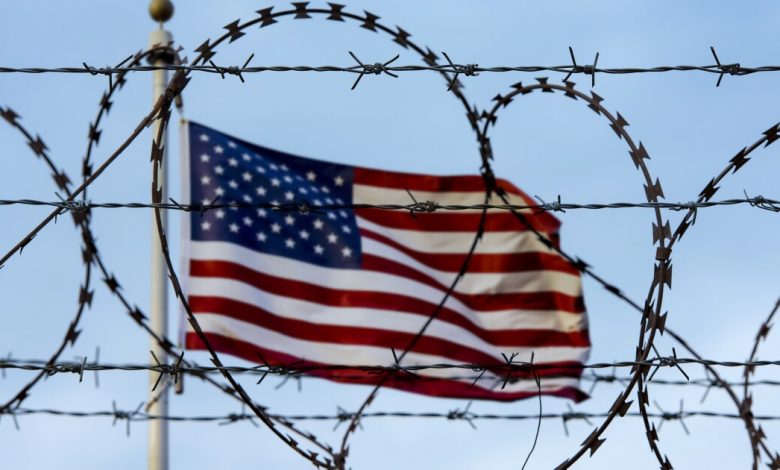Is Geopolitics Closing the Door on Open Research?

[ad_1]
On college campuses and in national capitals the consensus was that knowledge should be open and shared, both in the West and around the world. It was the rare country that was outside the global academic and scientific community, and those that were, like North Korea or Iran, were pariahs.
Almost all research was, by default, to be published and available for anyone to read. Few areas of inquiry were off limits, and it was clear when discoveries were to be walled off: when national security was at stake.
But that long-held consensus may be crumbling. Governments have become more suspicious of international collaboration, seeing it as not in concert with, and sometimes counter to, national interests. As a result, they have moved to put in place new restrictions on joint research and exchange.
China’s ambition to become a technological and innovative superpower has in particular led to a newfound mistrust in the West, culminating in the United States with the China Initiative, a high-profile investigation of academic and economic espionage that put university researchers in its cross hairs. The fear is that the Chinese will steal intellectual property and that even nonclassified research could benefit that country’s military and national-security apparatus.
College leaders in Europe and North America were also quick to suspend academic partnerships with Russian institutions following that country’s invasion of Ukraine. Calls have arisen to block Russian professors from publishing in international journals or participating in multinational research projects. Some critics have even said Russian students should be booted from American and other western universities.
Yet the retreat from international engagement comes as the advancement of knowledge is more dependent than ever on global connections. No longer is the best research limited to just a handful of countries. Indeed, some of the most cutting-edge science is being conducted in the very places that some policy makers would like to freeze out of academic collaboration, notably China.
The blurring of the once-bright lines defining what qualifies as sensitive research has left college leaders confused and uneasy, unsure about the rules for international academic engagement. Without clear guidance, some have begun to approach foreign partnerships warily; others have foresworn overseas work altogether.
“The best of western education is that it’s open and it’s free,” said Jenny J. Lee, a professor of educational policy studies and practice at the University of Arizona and editor of U.S. Power in International Higher Education, which examines the geopolitics of international education. “I’m afraid that’s being threatened.”
It raises a specter of intellectual advancement being confined to a closed loop, hemmed in by national borders. Could this mean the end of global open science and research?
The Biden administration announced in February that it would end the China Initiative, but officials made clear that scrutiny of foreign partnerships would continue.
Congress is considering competitiveness legislation that would impose tough new disclosure rules on the funds colleges get from overseas, restrict certain international exchanges and appointments, and potentially give the federal government the ability to reject some overseas partnerships. Several lawmakers have also introduced a bill to revive the China Initiative.
Even without new limits imposed by the government, some colleges are choosing to pull back from projects in certain parts of the world. Texas A&M University shut down a climate-research center because of security concerns raised by working with a Chinese partner. Just days after Russia attacked Ukraine, the Massachusetts Institute of Technology announced it was withdrawing from a Russian technological university it helped found.
However, the United States hasn’t been alone in redrawing the lines around international collaboration. A special parliamentary committee in Australia recently issued recommendations for curbing foreign influence on campus, including auditing overseas grants and designating dozens of high-tech fields as ones in which universities should exercise “greater caution” in international joint research. Lawmakers there approved legislation in 2020 giving the foreign-affairs minister veto power over agreements that the country’s public universities make with foreign governments and their entities if they aren’t seen as being in the national interest.
Not since Sputnik and the Cold War-era competition between the Soviet Union and the United States has knowledge itself been a key weapon in a global showdown.
In Britain, a government commission has sounded alarms about meddling on university campuses by Chinese and other authoritarian governments, and many in British higher education are bracing for the possibility of new oversight that could make it more difficult to maintain international partnerships.
Skepticism about international academic engagement is not limited to western governments. Prior to the Covid-19 pandemic, China had begun to limit visas granted to foreign scholars and to restrict their ability to access archives and conduct on-the-ground research. More recently, it has prohibited its own academics from participating in international conferences, requiring faculty members to secure university permission to speak even at virtual events. Last month, police visited the home of and questioned at least one professor who spoke at the annual meeting of the Association for Asian Studies, and several others were barred from delivering papers at the conference.
The Russian government, too, has said it will not allow researchers to take part in international conferences and will stop indexing their international publications. “We need to proceed from our national interest,” Valery Falkov, minister of science and higher education, told university rectors.
Taken together, some experts see those moves as a retreat from an era of global exchange of research and ideas. In a recent essay on higher education’s response to the invasion of Ukraine, Lisa Janicke Hinchliffe of the University of Illinois at Urbana-Champaign and Roger C. Schonfeld of Ithaka S+R wrote that academic decoupling following the invasion of Ukraine, both by Russia and by governments and colleges in western countries, may be the latest manifestation of “pressure arising against scientific openness.”
“It is not hard to imagine that — now that the tide has turned from past practice of maintaining scientific openness — scientific decoupling could become a more common strategy,” they wrote, although in an interview, the pair said it was too early to predict longer-term trends.
Several factors may explain this new wariness toward global engagement. One is the ascent of nationalist movements around the world, leading to greater polarization. University research has been caught in this net of geopolitical tensions. Some elected leaders, such as former President Donald J. Trump and Xi Jinping of China, have cast their country’s geopolitical advancement in zero-sum terms, characterizing international work as collaboration with an adversary.
“There’s some pitched tension between globalism and nationalism,” said Creso Sá, a professor of science policy, higher education, and innovation at the University of Toronto.
To some observers, educating students from countries like China and conducting joint research is ceding a home-country edge and potentially helping further the aims of authoritarian governments. At the same time, there are legitimate concerns that China isn’t playing by the accepted rules and is trying to take advantage of open research to advance its own interests.
Finally, research — specifically in science and engineering — is changing. Brad Farnsworth, a higher-education consultant and a former vice president for global engagement at the American Council on Education, said it’s no longer possible to categorize science as neatly as in the past.
What’s emerging is a third area of research, neither fundamental nor classified, he said. Call it “emerging” or “sensitive” or “pre-competitive” — it is research that may not currently have a commercial or security application but one day could, in potentially sensitive areas such as artificial intelligence or machine learning. “It’s an ongoing conversation about where the red line is and whether we’re crossing it,” Farnsworth said.
But along with deep unease about working with certain countries is serious concern about the costs of academic decoupling. China, in particular, has become a global research powerhouse, integrated into the worldwide research ecosystem. Chinese funding for higher education has doubled over the past decade, and a recent survey showed that it has caught up to the United States in its share of the world’s most highly cited papers.
“We could diminish our capacity to be cutting edge,” Farnsworth said, if American colleges reduced collaboration with Chinese counterparts. “Pulling apart puts us at a disadvantage.”
Yet withdrawal from global research and exchange may have already begun. Some researchers, including those of Chinese or Asian descent and those in certain high-tech fields, have pulled back because of the current environment. According to a survey by the Asian American Scholar Forum, nearly half of all researchers of Chinese descent are hesitant to apply for federal grants, and two-thirds said they felt unsafe as academic researchers.
A new paper by researchers at the University of California at San Diego found that the productivity of U.S.-based life scientists with a history of collaborating with China has declined since 2018, the start of the China Initiative, as compared with colleagues with research partners in countries other than China. The decline in quality was especially notable, the researchers found, with those scientists with a history of working in China experiencing a 7.2-percent decrease in publication citations over that time.
Lee, the University of Arizona professor, has also studied the China Initiative’s impact on scholars. “The biggest lesson here is that civil liberties take a back seat to national security, and that U.S. interests come before research,” she said.
Decreasing academic engagement could have long-term consequences across multiple disciplines. For example, academic study of China and Russia, including politics and language, could be undermined by both western suspicions and decisions of those countries’ governments to shut their doors to outside scholars.
The tension between universities as national institutions and as part of a global innovation ecosystem has a long history, Sá of the University of Toronto said. Higher education has often been able to have it both ways, arguing that research is fundamentally international but also that it serves national interests when colleges are seeking government funding.
Sá also said he would distinguish between colleges’ retreat from collaboration with Russian universities following the invasion of Ukraine and the longer-standing skepticism of western governments about higher education’s entanglement with China. He argued that the approach to Russia is a temporary response to a specific, and brutal, provocation, not a permanent policy shift.
The suspension of ties with Russian institutions reflects the broader political moment rather than the risks of academic engagement, Sá said. The thinking is, if companies are halting operations in Russia and if sports leagues and arts organizations are blackballing Russian dancers and marathon runners, why should higher education be exempt?
That attitude itself, though, is a break with the past, Sá said. Academics’ connections have long been seen as distinct from other sorts of international ties. “We’ve spent the last 50 years arguing that science is different, and now we’re saying it isn’t,” he said. “This is doing a disservice to scientific diplomacy.”
But Yangyang Cheng, a research scholar at Yale Law School who has written extensively about higher-education relations between the United States and China, said it’s naïve and unrealistic to see higher education as walled off from geopolitics. Much academic research is, at least in part, funded by national or state governments, which makes it political in nature. “Science and scientists are inherently political,” Cheng said. “There is no such thing as pure science.”
The very idea of global, open science, she said, has its roots in geopolitics, in a Cold War propaganda effort by western governments to appear more attractive to researchers than the “closed” science conducted by Communist governments. “It’s a cosmopolitan idea that many scientists believed in,” said Cheng, who has a doctorate in physics and was raised in China.
Some experts said that increased oversight is the price colleges pay for more government investment in research. The new competitiveness legislation being hammered out by Congress, for example, would both put in place stringent new requirements governing international research collaboration and authorize billions of dollars in new spending on research.
Farnsworth said higher education cannot put the genie back in the bottle and return to the simple days of classified versus fundamental research. Too much has changed, he said, including China’s investment in innovation and the emergence of new technologies that blur the lines between scholarly and sensitive research. Instead, he argued, college leaders need to be more proactive in shaping policy for the new reality.
“It’s a nonstarter to say that we can just go back to the status quo,” he said.
Yet, Sá said he was hopeful that the pendulum would not swing all the way to the closing off of academic engagement. Instead, he said he expected more guardrails would be placed on joint research, based on the type of research or the partner country. “No scientist,” he said, “wants to be cut off from the global system.”
[ad_2]
Source link






